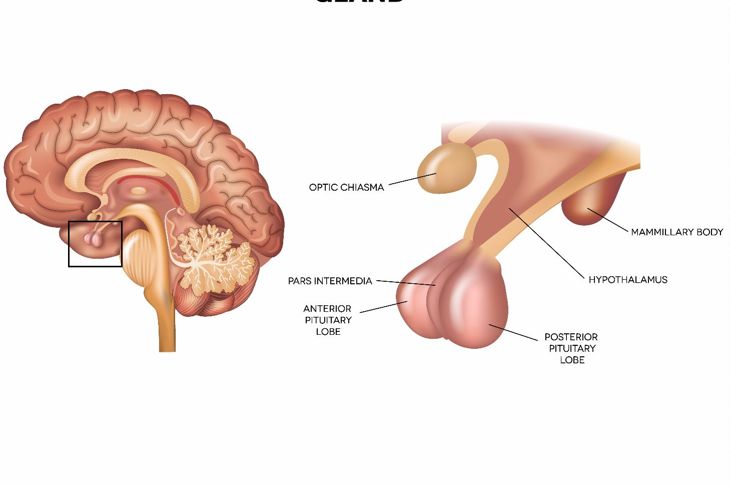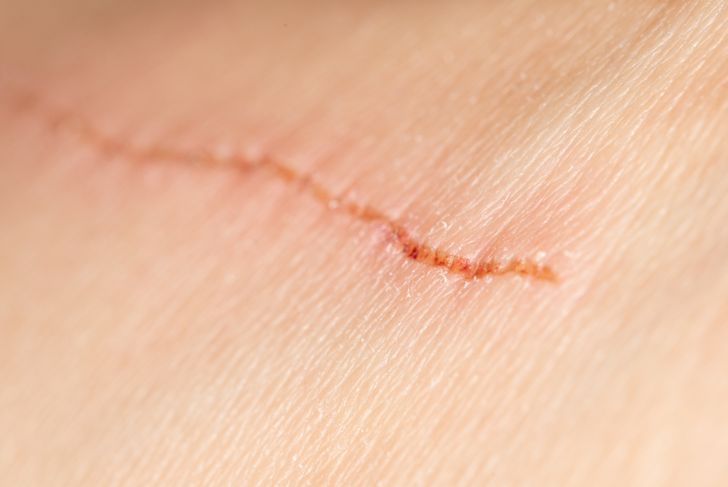Cushing’s disease wreaks havoc with the body’s hormones — specifically cortisol. Side effects of medication most frequently trigger this disease. Some immunosuppressant and anti-inflammatory drugs are the most common causes of Cushing’s disease. However, it’s important not to confuse Cushing’s disease with Cushing’s syndrome. Cushing’s syndrome refers to various symptoms associated with excess cortisol, while Cushing’s disease is another name for the pituitary gland tumor. Cushing’s disease, on the other hand, is a serious and potentially lethal illness.Since the disease can cause serious physical symptoms, individuals taking corticosteroid medications should inform themselves about various ways of protection from Cushing’s disease. The illness affects up to 3 million people on an annual basis. It can also be inherited, but the chances of this occurrence are rather low. Cushing’s syndrome is treated almost the same as cancer, with radiotherapy, chemotherapy, surgery, and drugs that inhibit cortisol. Since some conditions can lead to this illness, aside from the mentioned medications, a large number of individuals are at risk. Thus, it’s important to know the ten most common signs of Cushing’s disease.
Pituitary Adenoma
Pituitary adenomas are tumors that take place in the pituitary gland. There are three distinct categories, depending on their severity: benign, invasive and carcinogenic. While most pituitary adenomas are harmless, about 35% are invasive, and 0.2% are cancerous. However, this condition accounts for up to 70% of Cushing’s syndrome cases. Also, this sign is the one most closely related to Cushing’s disease. The problem with this condition is that no matter the severity, it causes the over-secretion of cortisol. When compared to any other source of excess cortisol, pituitary adenomas are the biggest contributor to Cushing’s overall.
Weight Gain
As cortisol goes out of its natural balance, various bodily functions begin acting out of the ordinary. One of the signs of excess cortisol is uncontrolled weight gain. The sufferers will experience rapid growth of fat tissue, mostly in the midsection, chest, and upper back and between the shoulders. Another characteristic that accompanies weight gain induced by cortisol overproduction is the sudden change of the face shape. Simply put, a person with a healthy weight and normal facial structure will appear like obese in a matter of a few months. In addition, the arms and legs may even grow thinner, which is a telltale sign of abundant cortisol production.
Stretch Marks
Pink or purple stretch marks due to rapid skin expansion can appear anywhere on the abdomen, thighs, arms, and breasts. Over the course of a year, this symptom becomes increasingly worse, and the only way to solve it is to cure whatever is causing cortisol overproduction. By that time, most patients will have a large array of stretch marks in different places on the skin. Stretch marks will never heal on their own, but some people choose to remove them with laser surgery.
Slow Regeneration
The body’s natural ability to heal normally depends on the activity of white blood cells in the bloodstream. However, in the case of cortisol overload, this process becomes prolonged and slows down considerably. Sufferers will need to wait for up to four or five months before a simple scratch scab falls off, for example. Those that get bruised will experience dark purple areas on the skin that take much longer to disappear than they used to. Generally speaking, this symptom, along with weight gain, is the signature of Cushing’s disease. Simply put, it becomes fairly easy to notice that there is a problem that requires medical attention when healing occurs at such a slow rate.
Erectile Dysfunction
The bodily functions that are controlled by the sex hormone (or any other hormone for that matter) become heavily impaired in Cushing’s disease. In this case, the overproduction of cortisol impairs the functions of testosterone and estrogen, making the sufferers almost unable to experience sexual arousal. This symptom starts with decreased fertility and low libido, but erectile dysfunction is the final complication. Additionally, the increase in fat tissue in the pad surrounding the male genitals further impairs the function of the penis. Thus, even if they can be achieved, erections will be weak and difficult to maintain.
Hirsutism and Absence of Periods
Most of the time, both hirsutism (body hair thickening) and a lack of periods coincide. Women have a slightly higher chance of gaining uncontrolled weight, due to occasional hormonal fluctuations and potential medications (contraception pills).Hence, checking for the occurrence of hirsutism and period absence is probably the most reliable way to tell whether a woman has Cushing’s disease. This also encompasses a large decrease in fertility, which means pregnancy is almost impossible. Then again, couples aren’t supposed to produce offspring if one or both parties have Cushing’s disease, due to the increased risk for birth defects.
Severe Fatigue
Cortisol or the “stress hormone” helps regulate various processes that take place in the body. Accordingly, when a person is affected by Cushing’s disease, they begin experiencing the side-effects of chronic stress. Cortisol in itself may not damage our nerves as much as actual stress, but it rids one of energy nonetheless. The sufferers of Cushing’s disease will notice that, no matter how long they sleep, they still feel exhausted.
Depression, Anxiety, Irritability
Depression, anxiety, and irritability are common symptoms of everyday stress. Similarly, when cortisol is constantly in production even without the presence of stress, the individual will feel much the same. One of the extra dangers of Cushing’s disease is that it may lead to psychological issues, such as serious mental illnesses. Depending on the duration of the disease, the sufferers can experience significant mental disturbance.
Cognitive Difficulties
The constant production of cortisol keeps the brain occupied, and those that experience this illness often find it difficult to maintain their social interactions. Often, people, understandably, become preoccupied with the physical and mental changes that are occurring as a result of the dramatically increased cortisol production. Sufferers find it difficult to focus on tasks related to work or study as well.
Loss of Emotional Control
As cortisol takes its toll on the brain, it becomes much harder to control one’s emotions. As a result, sufferers will often exhibit emotional outbursts. Sometimes these outbursts can take a toll on the individual’s professional and personal relationships. Getting treatment is the best way to put this disease and its symptoms in check.

 Home
Home Health
Health Diet & Nutrition
Diet & Nutrition Living Well
Living Well More
More




















